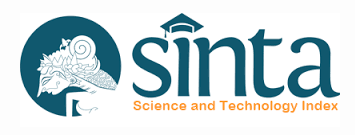PRINSIP-PRINSIP DAKWAH MENURUT SAYYID QUTHUB (Sebagai Pedoman Dai Untuk Keberhasilan Dakwah)
Abstrak
Da'wah is an invitation to a life that is more graceful form of life that is able to actualize Islamic moral values in various forms, are also able to appreciate the whole meaning to the reality of life more humane. By him that every missionary activity should be designed and carried out as well as possible by taking into account various situations and conditions encountered. Furthermore, how the propaganda should be done, of course, using the methodology of da’wa which is one aspect that is very important in the process of da’wa.Methodology da’wa no less important than da’wa material itself. In speaking of this da’wa methodology includes at least three main topics namely; general rule the da’wa of Islam, the principles of the methodology of da’wa and proselytizing movement system. All three of the above are interrelated to one another. And need to be translated into a system of da’wa movement that is more technical and operational. To achieve success dai in activities teachings, then they must be necessary to establish an organization that serves as an institution or the container will collect and menytukan potential and power of the people to be exploited and empowered for progress and success dai, meaning that missionary activity is no longer seen as a task individual duty, but it is a collective duty and obligation of all Muslims, because the problem is so severe da’wa, the da’wa collective dikooordinasi by an institution that is strong and solid preaching, is seen as an absolute requirement for success preaching the da’i.Referensi
Abdullah M. Amin, Dinamika Islam Kultural Pemetaan Atas Wacana Keislaman Kontenporer, Bandung, Mizan 2000.
---------Studi Agama: Normativitas atau Historisitas, Yogyakarta, Pustaka Pelajar, 1996
Abdullah, Taufiq dan Rusli Karim, Metodologi Penelitian Agama Sebuah Pengantar, Yoyakarta, Tiara Wacana, 1990
Achmad, Amrullah (Ed), “Dakwah Sebagai Ilmu” Dakwah Jurnal Kajian Dakwah dan Kemasya-rakatan, Vol. 1, No. 1, 1999.
---------Dakwah Islam dan Perubahan Sosial, Yoyakarta, Prima, 1983
Ahmad, Ahmad Ghalwusy, al Dakwah al Islamiyah Ushuluha wa wasailuha, Kairo Dar al Kitab al Mishri, 1987
Alawiyah, Tutti, Paradikma Baru Dakwah Islam, Mmembangun Masyarakat MelaluiPengembangan sosio Kultural mad’u, Ciputat, IAIN Syarif Hidayatullah, 2001.
Asyaukani, A. Luthfi, Tipologi dan wacana Pemikiran Arab Kontenporer, “Jurnal Pemikiran Islam Paramadina, Volume 1 No. 1 Juli-Desember 1998.
Asqalani, Ahmad ibn Ali Ibn Hajar, Fathal Bari Bisyarah Shahih al Bukhari, Beiirut, Dar al Fikr, 1991
Departemen Agama RI, Al Qur’an Dan Terjemahnya, Jakarta, Proyek Pengadaan Kitab Suci Al Qur’an, 1985/1986.
Dimasyqi, Ibn Katsir, Tafsi al Qur’an al Azhim, Beirut: Dar al Fikr, 1992
Khalidi, Shalah ‘Abd al Fattah, al Madkhal ila Zhilal al-Qur’an, Jeddah Saudi Arabia, Dar al Manarah, 1986
Quthub, Sayyid, Dirasah Islamiyah, Beirut, Dar al Syuruq, 1991
-------Da’wah al Islam, Beirut, Dar al Kitab al Arabi, 1971
------ Mustaqbal li hazah al Din, Beirut Dar al Syuruq, 1974
------ Fi Zhilal al Quran, Dar al Syuruqm 1982
----- Traditional Islam in the Modern world, London Now York Kegan Paul International, 1990
Once an article was published in the journal, the author(s) are:
granted to the journal right licensed under Creative Commons License Attribution that allows others to share the work with an acknowledgment of the work's authorship. permitted to publish their work online in third parties as it can lead to wider dissemination of the work. continue to be the copyright owner and allow the journal to publish the article with the CC BY license receiving a DOI (Digital Object Identifier) of the work.





